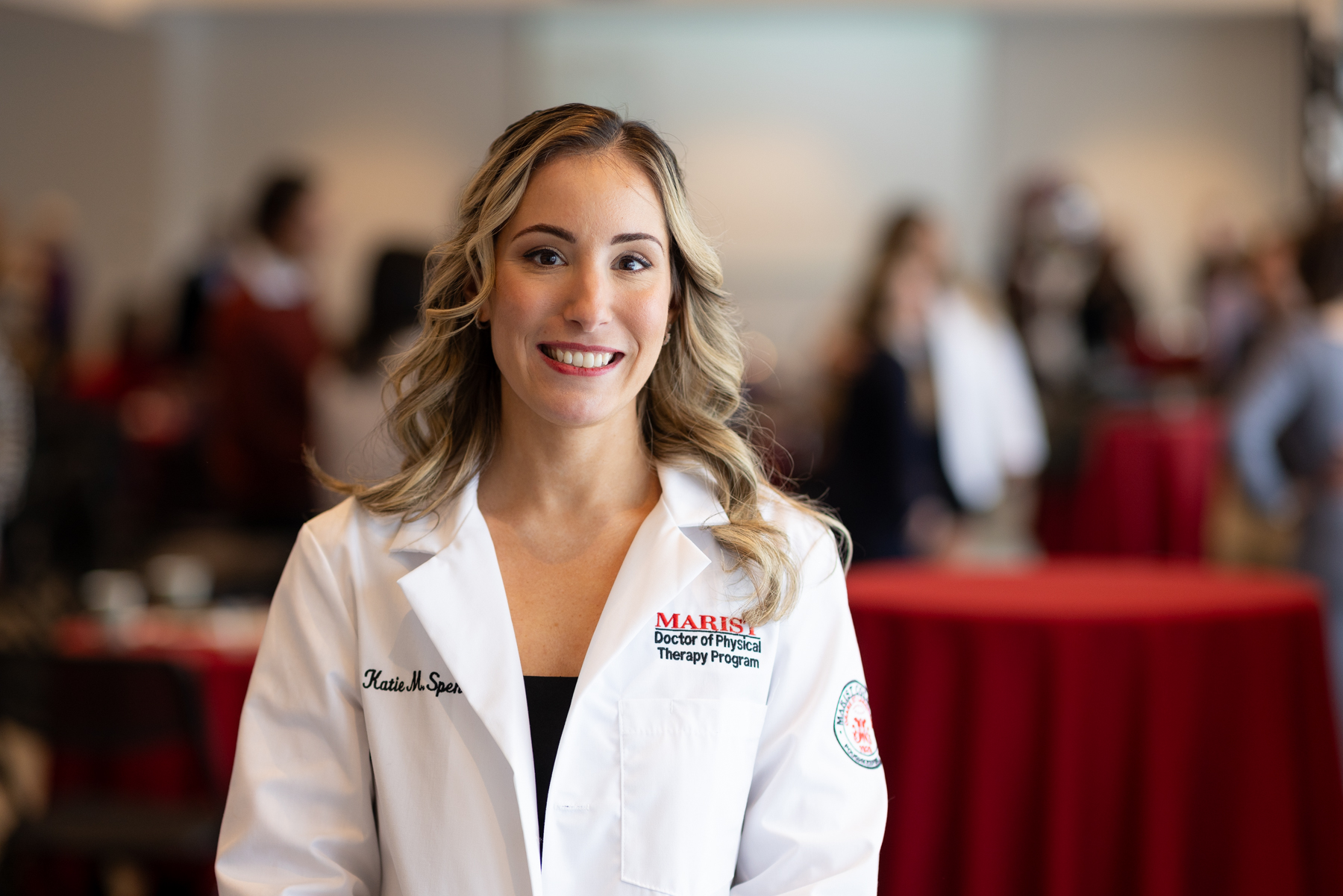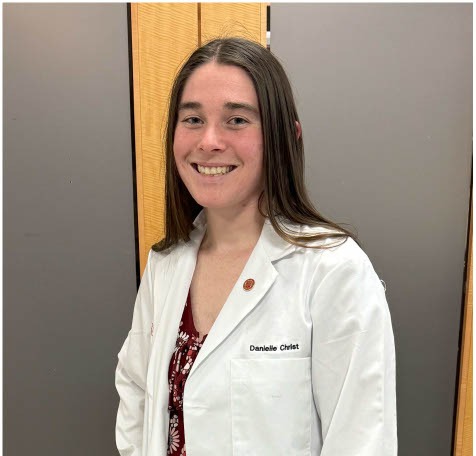ACAPT's Awards & Recognition committee joins the Journal of Humanities in Rehabilitation (JHR) to sponsor a judged writing competition designed to encourage deep thinking by physical therapy students about the role and value of humanities, ethics and professionalism in academic training and professional life.
The annual Physical Therapy Student Essay Contest offers a creative opportunity to ignite critical reflection in PT students across the nation.
Congratulations to the 2025 contest recipients who wrote about navigating ambiguity and uncertainty in clinical practice or education.
The first-place winner received a $250 award from ACAPT and all winners' essays appear in the 2025 spring & fall issue of JHR.
First place

Katie Spencer, a student at Marist University
Katie M. Spencer, a Doctor of Physical Therapy student from Marist College. In her essay, "The Young Doctor: One Day Inshallah," she recounts her transformative experience providing medical care in a Syrian refugee village during her time as a U.S. Army medic. Her narrative highlights how this challenging environment, where she had to provide care with minimal resources through language barriers, shaped her understanding of adaptive healthcare delivery and compassionate patient care.
Central to her essay is an encounter with a young girl who dreamed of becoming a doctor, despite her school being destroyed by insurgents. This poignant interaction, along with treating patients suffering from chronic conditions without access to specialized care, taught Spencer that "language barriers and cultural differences mean little when a bridge of universal compassion is built."
Through her experiences treating Kurdish villagers in austere conditions, Spencer learned to innovate with limited resources and prioritize listening to patients' stories. Her essay emphasizes that healthcare extends beyond visible symptoms, requiring providers to understand patients' personal narratives and cultural contexts. This perspective has become foundational to her approach as an aspiring physical therapist and her commitment to being a Master Adaptive Learner.
Finalists

Katherine Hendry, Emory University
Katherine Hendry, a third-year Doctor of Physical Therapy student at Emory University, weaves together her experiences as a pianist and aspiring physical therapist in her narrative essay, "To Be, To Inflect, To Feel." Through the metaphor of playing Beethoven's Moonlight Sonata, she explores how the arts have informed her approach to healthcare delivery.
Hendry draws a compelling parallel between musical interpretation and patient care, noting that while science provides clear answers and protocols, working with patients often requires navigating "situations of gray" where there isn't a clear solution. She recounts a powerful interaction with a spinal cord injury patient, where she found herself drawing on her musical experience – adjusting her "tempo" and "dynamics" to meet the emotional needs of her patient.
Through her narrative, Hendry emphasizes that effective healthcare requires practitioners to move beyond clinical data points and connect with patients on a human level. Just as each musician brings their unique interpretation to a piece of music, she argues that clinicians must be adaptable, creative, and deeply empathetic in their approach to patient care. Her experience in the humanities, particularly music, has enhanced her ability to provide more compassionate and person-centered care as a clinician.

Danielle Christ, Rutgers University
Danielle Christ, a second-year Doctor of Physical Therapy student at the School of Health Professions (SHP) at Rutgers University, recounts a transformative clinical experience treating a patient recovering from total knee arthroplasty complicated by infection. Through her narrative, Christ demonstrates how managing uncertainty in patient care requires addressing both physical rehabilitation and emotional healing.
Her essay, "Physical Therapy is More Than Just Physical," explores how a routine case evolved into a deeper lesson about healthcare delivery when her patient struggled not only with post-surgical complications but also with the psychological impact of her delayed recovery. By creating space for her patient's narrative and incorporating principles from health humanities, Christ helped her patient progress from fear and frustration to renewed confidence in her recovery journey. The experience reinforced Christ's understanding that effective rehabilitation extends beyond mechanical exercises and measurements, requiring clinicians to see and treat the whole person—a lesson she plans to carry forward in her clinical practice.